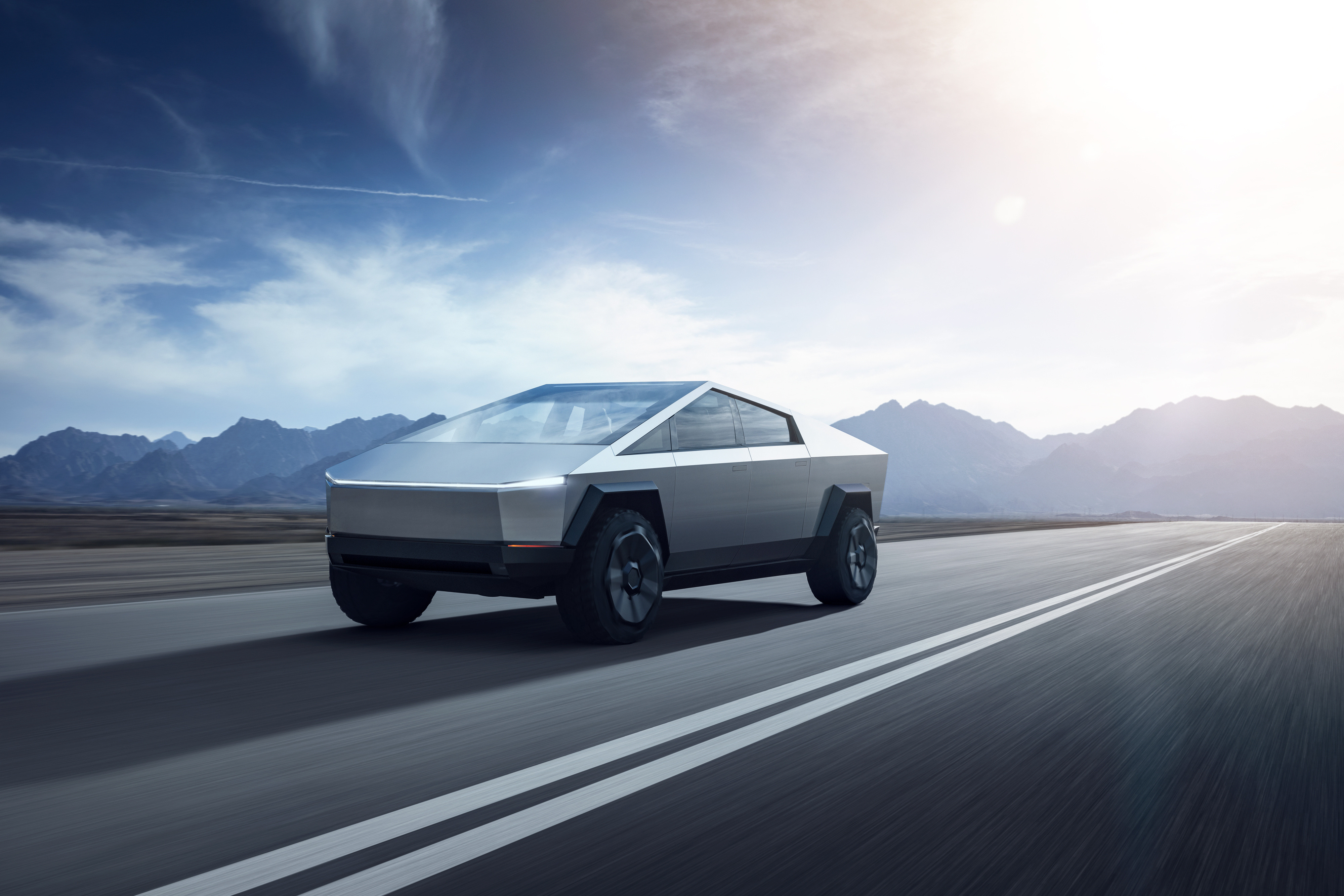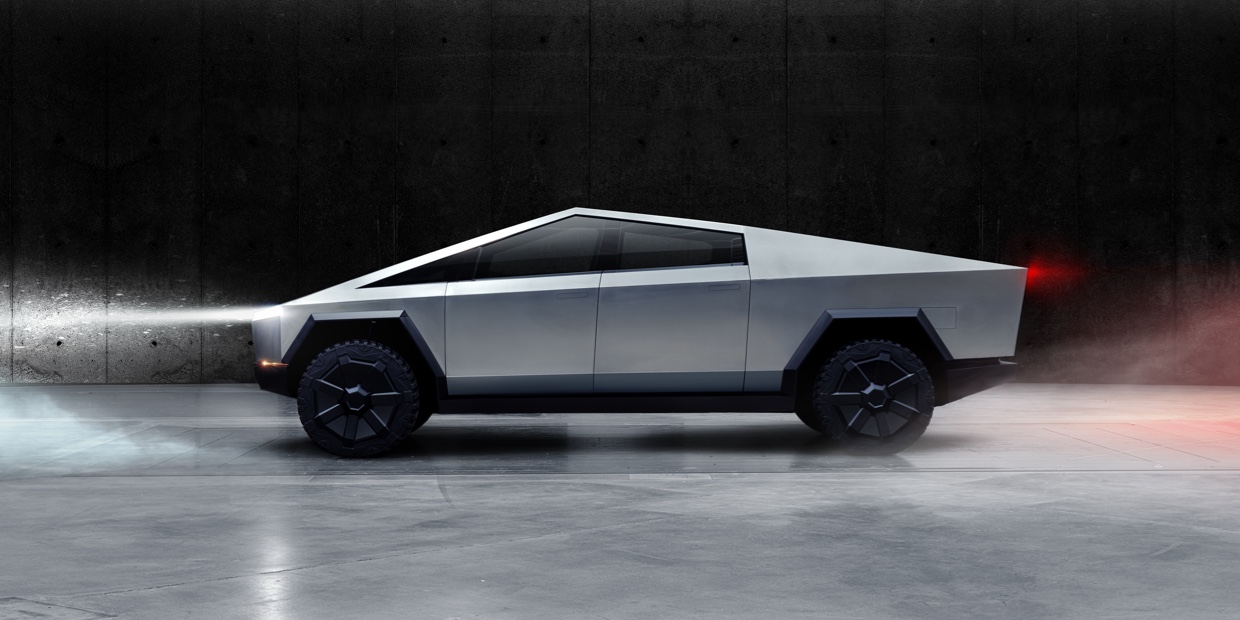Tesla has a major delay problem — and Cybertruck proves it
If Tesla wants to stay competitive, it needs to be able to hit a deadline

If recent reports are accurate, the Tesla Cybertruck is looking at another delay — one that wouldn’t see it hit the streets until sometime in early 2023. Originally slated to start arriving in late 2021, Tesla delayed the Cybertruck by a year last August.
Evidently supply chain issues, among other things, meant hitting the original release window was impossible. Unfortunately, it’s a situation people will be familiar with if they’ve followed Tesla for long enough. And that’s a problem Tesla is going to need to get a handle on as the rest of the auto industry gets serious about electrification.
Tesla has a long history with delays
Delays are common at the moment, and not just in the automotive industry. The COVID-19 pandemic has wrought havoc on supply chains, and played a key role in issues relating to production and transportation of chips and other key components.
Tesla is not the only car company to delay a vehicle due to the ongoing mess with chip and component supplies. Nissan is a prime example, having delayed the launch of its new Ariya flagship by several months thanks to ongoing chip shortages. The car was set to arrive in Japan in mid-2021, and then delayed to “this Winter."
However, Tesla is no stranger to delays and has a long history of letting its deadlines fly by. Initial production of the Model 3 was plagued with delays and production problems, while the likes of the Tesla Semi and second generation Roadster are still waiting for an official launch.
The Model X was delayed by over a year, with the automaker promising deliveries would start in early 2014 — only for delays to push the SUV’s delivery window back to September 2015.
Now history appears to be repeating itself with the Cybertruck, and that’s a problem for Tesla.
Get instant access to breaking news, the hottest reviews, great deals and helpful tips.
In years gone by, it didn’t really matter if Tesla was delaying its cars or not. Very few automakers were interested in mass-electrification, and those that did rarely had much variety in their portfolios. That let Tesla dominate the EV market, which it arguably still does.
According to Car and Driver, as of late October, the Tesla Model Y and Model 3 had sold over 300,000 units in the U.S. between them. Meanwhile the next best-selling electric car, the Ford Mustang Mach-E, had only sold 27,140 cars.
But so far Tesla only sells two kinds of cars. Two sedans/saloons: the Model S and Model 3, the Model X SUV, and the Model Y crossover SUV. The Cybertruck opened up a whole new avenue for Tesla, and had it met its original launch date would have been the first high-profile electric truck to hit the market.
Electric trucks are already here, but where's the Cybertruck?

Being first would have been a huge advantage for Tesla. Not only would it offer an electric option for even the most loyal truck owners, it would also beat the competition out of the door.
Considering how many electric trucks have been announced, it seems as though that’s the next big rush for the auto industry — or at least it is in the United States, the largest market for pickup trucks.
Instead, however, Rivian beat Tesla to launch, delivering the first R1T trucks last fall and informing customers of their delivery windows. Likewise Hummer started delivering the first GMC Hummer EV Edition 1 by the end of December 2021. And Ford is still (as far as we know) on schedule to start delivering F-150 Lightnings in the first half of this year.
Meanwhile, Tesla quietly removed the 2022 launch estimate from the Cybertruck order page, and offered zero explanation for it. That’s when the rumors began swirling that a delay was on the cards, followed by a Reuters’ report that we’d have to wait at least a year for the first Cybertrucks to roll off the production line.
Apparently, the delay stems from Tesla making some sweeping changes to the Cybertruck’s feature set — with the goal of making it more competitive in face of increasing competition.
That's noble, though it risks bringing the Tesla Cybertruck to the market a little too late. The truck already has an uphill battle to be taken seriously, considering it’s truly bonkers design, something Elon Musk has already spoken about. However, the Cybertruck did have a number of factors in its favor.
Tesla has the advantage, but it's squandering it
The most obvious advantage the Cybertruck has is the brand recognition, since Tesla has built up a reputation of offering electric vehicles that don’t completely suck. The Cybertruck also has all the usual Tesla bells and whistles like Autopilot, Supercharger access, long range and so on.
But the longer Tesla waits, the more time it gives the competition to offer their own comparable features.
While a Rivian R1T may not be able to plug into a Tesla Supercharger (yet), the automaker has already got to work developing its own network of EV chargers. Chargers that offer 300KW speeds compared to Tesla’s 250kW.
Ford is doing something similar, and all non-Tesla cars will be able to take advantage of the growing number of third-party EV charging stations across the U.S. Tesla’s proprietary charging port, and the fact it doesn’t sell a Tesla to CCS adapter in the U.S., means Tesla owners can't do this and puts them at a disadvantage.
The Supercharger network may have a numbers advantage right now, but it’s only a matter of time before other EV makers and charging providers start catching up. All the more reason for getting the Cybertruck on the streets as soon as possible.
There’s no better advertising than talking to an enthusiastic owner or seeing a vehicle out on the road. And the Cybertruck’s design means you couldn’t miss it, even if you tried.
This isn’t just about the Cybertruck. Other incoming Tesla cars are going to suffer if the automaker keeps delaying their roll out. After all, why wait for a Tesla Roadster, when you could buy a high-performance, long range Lucid Air for significantly less money?
Bottom Line
The absolute last thing anyone wants is a car that’s rushed to market, and doesn’t perform as expected. Least of all Tesla and its shareholders. Still, the fact is, we’re past the days where Tesla could afford to sit back and let the delays work themselves out.
In the past, EV enthusiasts would have to sit tight and wait for Tesla to sort itself out, because the EV market was so small. What were people going to do, cancel their Model S pre-order and buy a Nissan Leaf? Not likely.
But that’s no longer the case. The internal combustion engine has an expiry date, and automakers have realized that electric cars are the obvious successor. Not only are more cars on the way, automakers are creating a huge variety of electric options for people who don’t necessarily want to choose between a sedan and a hatchback with no in-between. Hence why there are so many electric SUVs and trucks on the way.
Tesla has an extraordinary amount of brand recognition, customer loyalty and a reputation that is built on hype. But the more it fails to adapt to the changing electric car market, the less likely it is that those things will be enough.

Tom is the Tom's Guide's UK Phones Editor, tackling the latest smartphone news and vocally expressing his opinions about upcoming features or changes. It's long way from his days as editor of Gizmodo UK, when pretty much everything was on the table. He’s usually found trying to squeeze another giant Lego set onto the shelf, draining very large cups of coffee, or complaining about how terrible his Smart TV is.
 Club Benefits
Club Benefits





